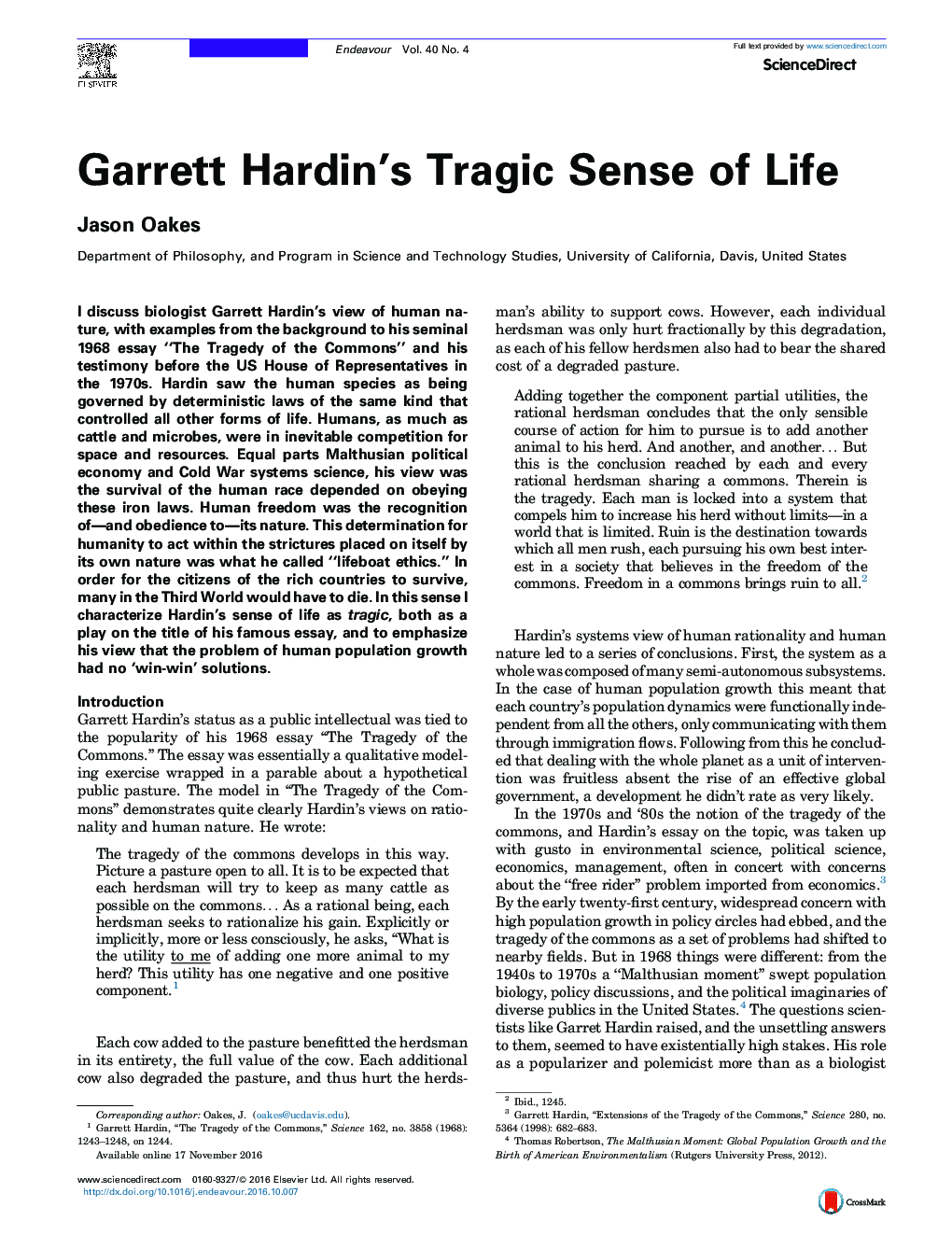| Article ID | Journal | Published Year | Pages | File Type |
|---|---|---|---|---|
| 7550940 | Endeavour | 2016 | 10 Pages |
Abstract
I discuss biologist Garrett Hardin's view of human nature, with examples from the background to his seminal 1968 essay “The Tragedy of the Commons” and his testimony before the US House of Representatives in the 1970s. Hardin saw the human species as being governed by deterministic laws of the same kind that controlled all other forms of life. Humans, as much as cattle and microbes, were in inevitable competition for space and resources. Equal parts Malthusian political economy and Cold War systems science, his view was the survival of the human race depended on obeying these iron laws. Human freedom was the recognition of-and obedience to-its nature. This determination for humanity to act within the strictures placed on itself by its own nature was what he called “lifeboat ethics.” In order for the citizens of the rich countries to survive, many in the Third World would have to die. In this sense I characterize Hardin's sense of life as tragic, both as a play on the title of his famous essay, and to emphasize his view that the problem of human population growth had no 'win-win' solutions.
Related Topics
Social Sciences and Humanities
Arts and Humanities
History
Authors
Jason Oakes,
